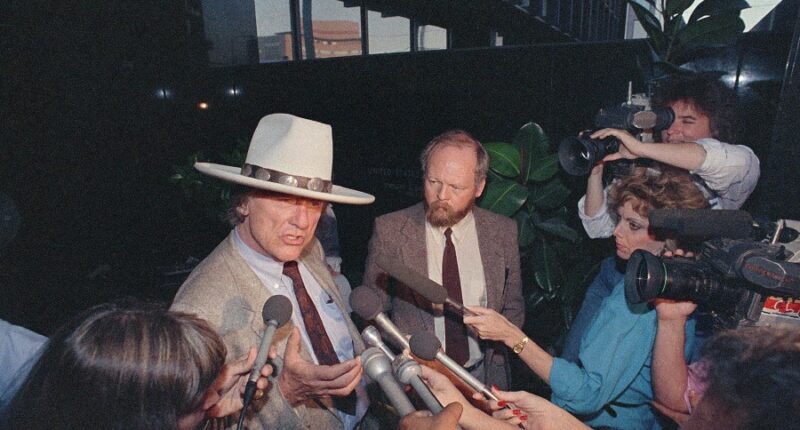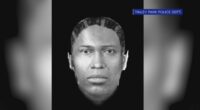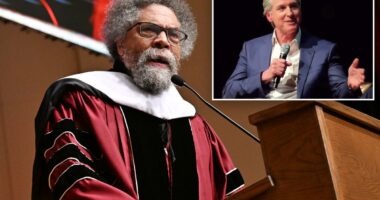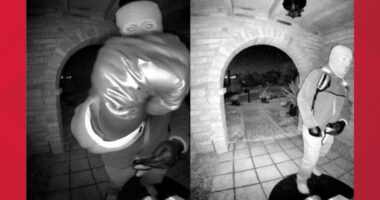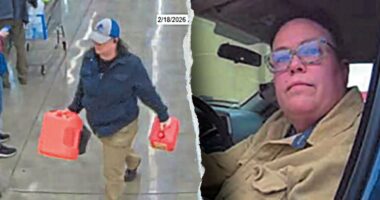Share this @internewscast.com

CHEYENNE, Wyo. (AP) — Gerry Spence, the trial lawyer from Wyoming recognized for a series of significant courtroom victories, beginning with a multimillion-dollar judgment against a plutonium processor in the famous Karen Silkwood case, has passed away.
Spence, 96, died late Wednesday surrounded by family at his home in Montecito, California, according to a family statement.
“We are proud of his legacy and his contributions to the world, but most importantly, we are proud to be part of the family he built with love. We feel this loss deeply and we will carry him with us always,” stated his granddaughter Tara Spence McClatchey.
Spence dedicated his life to fighting for the rights and freedom of ordinary people, colleague Joseph H. Low IV said in a statement.
“No lawyer has done as much to free the people of this country from the slavery of its new corporate masters,” commented Low, vice president and chief instructor at the Gerry Spence Method school for trial lawyers.
A practiced storyteller with a distinctive voice and known for his trademark suede fringe jacket that reflected his Wyoming heritage, Spence was once among the nation’s most well-known trial lawyers.
He gained fame in 1979 with a $10.5 million verdict against Kerr-McGee, based in Oklahoma City, on behalf of Silkwood’s estate. Silkwood, a nuclear worker contaminated with plutonium, died in a car accident shortly after. Her father alleged that the company was negligent in handling the plutonium that led to his daughter’s contamination.
An appeals court reversed the verdict and the two sides later agreed to an out-of-court settlement of $1.3 million.
The events became the basis for the 1983 movie “Silkwood” starring Meryl Streep.
Spence successfully defended former Philippines first lady Imelda Marcos against federal racketeering and fraud charges in 1990.
Spence also secured an acquittal for Randy Weaver, who faced murder and other charges after a 1992 shootout with federal agents at Ruby Ridge, Idaho, resulted in the deaths of an FBI agent as well as Weaver’s wife and 14-year-old son.
Spence led the Spence Law Firm in Jackson, Wyoming, and founded the Trial Lawyers College, now called the Gerry Spence Method. The retreat at Thunderhead Ranch in Dubois, Wyoming, helps attorneys hone their courtroom skills.
He wrote more than a dozen books, including the bestselling “How to Argue and Win Every Time.” He made frequent television appearances on legal matters.
Spence and his wife, Imaging, divided their time between Wyoming and California before selling their place in Jackson Hole about four years ago. An artist and poet, Spence continued painting and writing into his final days, according to the family statement.
Gerald Leonard Spence was born Jan. 8, 1929, to Gerald M. and Esther Spence in Laramie. The family scraped by during the Depression by renting out to boarders. Spence’s mother sewed his clothes, often using the hides of elk hunted by his father.
Years later, Imaging Spence sewed his fringe jackets. Spence drew a connection between the two women in his 1996 autobiography, “The Making of a Country Lawyer.”
“Today when people ask why I wear a fringed leather jacket designed and sewn by my own love, Imaging, it is hard for me to explain that the small boy, now a man of serious years, still needs to wear into battle the protective garment of love,” he wrote.
Pivotal in Spence’s young life were the deaths of his little sister and mother. Peggy Spence died of meningitis when he was 4 and his mother took her own life in 1949.
Spence’s father, a chemist, worked a variety of jobs in several states but the family returned to Wyoming. Spence graduated from Laramie High School and after a stint as a sailor, enrolled in the University of Wyoming.
Spence graduated cum laude from the University of Wyoming law school in 1952 but needed two tries to pass the state bar exam.
He began his law career in private practice in Riverton, Wyoming, and was elected Fremont County prosecutor in 1954. In 1962, he ran for the U.S. House of Representatives, losing in the Republican primary.
Spence returned to private practice but said in his memoir he grew discontented with representing insurance companies and “those invisible creatures called corporations.”
Spence received numerous awards and honors, including an honorary doctor of laws degree from the University of Wyoming and a lifetime achievement award from the Consumer Attorneys of California. He was inducted into the American Trial Lawyers Hall of Fame in 2009.
Spence and his first wife, Anna, had four children.
He is survived by his wife of 57 years, LaNelle “Imaging” Spence; brother, Tom Spence; children Kip Spence, Kerry Spence, Kent Spence, Katy Spence, Brents Hawks and Christopher Hawks; 13 grandchildren; and one great-grandchild. He was preceded in death by sisters Peggy and Barbara.
Funeral arrangements were pending.
